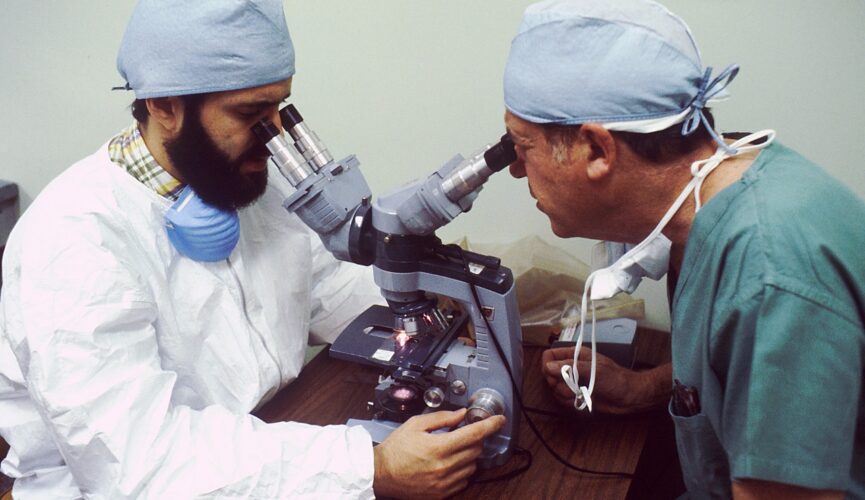In the realm of healthcare, medical technologies have revolutionized the way we understand, diagnose, and treat diseases. These advanced tools not only save lives but also play a crucial role in disease prevention and early detection. In this blog post, we will explore some of the remarkable medical technologies that have transformed the field and continue to improve healthcare outcomes for patients worldwide.
Introduction: Unveiling the Prominence of Medical Technologies
Advancements in medical technologies have significantly impacted our understanding of diseases, leading to better prevention strategies and enhanced treatments. These technologies encompass a wide range of tools, devices, and techniques used by healthcare professionals to diagnose and manage diseases effectively.
Understanding Diseases: Diagnostic Technologies in Action
Accurate and timely diagnosis is the cornerstone of effective disease management. Medical technologies have revolutionized the diagnostic process, aiding healthcare providers in identifying diseases with precision and speed. One such technology is medical imaging, including modalities such as X-rays, computed tomography (CT), magnetic resonance imaging (MRI), and ultrasound. These non-invasive techniques provide detailed images of internal structures, allowing healthcare professionals to identify abnormalities and diseases within the body.
Moreover, laboratory technologies, such as advanced blood tests and genetic testing, provide valuable insights into an individual’s health status. These tests help detect specific markers, enabling the early detection of diseases like cancer, cardiovascular disorders, and genetic conditions. With better understanding and early identification of diseases, medical technologies empower healthcare providers to intervene at earlier stages, significantly improving patient prognosis and survival rates.
Disease Prevention: A Revolution in Promoting Health
Medical technologies not only assist in disease diagnosis but also play a key role in disease prevention. Promoting health and preventing the development of diseases is a fundamental aspect of healthcare, and medical technologies have proven to be formidable allies in this endeavor.
Telemedicine, for instance, has gained tremendous prominence in recent years, particularly during the COVID-19 pandemic. This innovative approach allows patients to consult healthcare professionals remotely, eliminating the need for in-person visits. By leveraging telecommunication technologies, patients can receive timely medical advice, monitor chronic conditions, and seek preventive care. Telemedicine serves as a convenient and efficient means of healthcare delivery, ultimately reducing the risk of disease transmission and enhancing preventive measures.
Additionally, wearable devices have become increasingly popular, promoting healthy lifestyles and empowering individuals to take control of their health. Fitness trackers, smartwatches, and other wearable technologies monitor vital signs, track physical activity, and provide valuable insights into overall well-being. By encouraging regular physical activity, healthy habits, and early detection of abnormalities, these devices contribute to disease prevention and improved health outcomes.
Revolutionary Treatments: The Impact of Advanced Medical Technologies
While disease prevention and early detection are paramount, medical technologies also revolutionize the landscape of disease management and treatment options. One such groundbreaking technology is robotic surgery. With the aid of robotic-assisted systems, surgeons can perform complex procedures with enhanced precision, flexibility, and minimally invasive approaches. Robotic surgery has transformed the field of surgical interventions, allowing for smaller incisions, decreased recovery time, and reduced complications, ultimately saving lives and improving patient outcomes.
Furthermore, medical technologies have propelled the rise of personalized medicine. Through genetic profiling and molecular testing, healthcare providers can tailor treatments to individual patients, accounting for their unique genetic makeup and disease characteristics. This approach optimizes treatment response, minimizes adverse effects, and improves the overall quality of care. Personalized medicine represents a paradigm shift in healthcare, enhancing the effectiveness of therapies and maximizing patient well-being.
Conclusion: Embracing the Future of Medical Technologies
As we look toward the future, medical technologies continue to hold immense promise in advancing healthcare. From rapid diagnostic tests to artificial intelligence-driven precision medicine, the possibilities are endless. Embracing these advancements empowers us to deepen our understanding of diseases, enhance preventive strategies, and refine treatment approaches.
While medical technologies undoubtedly play a pivotal role in saving lives and promoting health, it is essential to remember that they work in tandem with the expertise and compassion of healthcare professionals. The human touch remains crucial in the face of technological innovation, ensuring that patients receive the comprehensive, individualized care they deserve.
In conclusion, medical technologies have ushered in a new era of healthcare, driving progress in disease understanding, prevention, and treatment. From diagnostic tools enabling early detection to wearable devices promoting healthy habits, the potential for medical technologies to save lives is limitless. By embracing these advancements and coupling them with the dedicated expertise of healthcare professionals, we have the power to transform the future of healthcare and make a profound impact on the well-being of individuals and communities worldwide.
